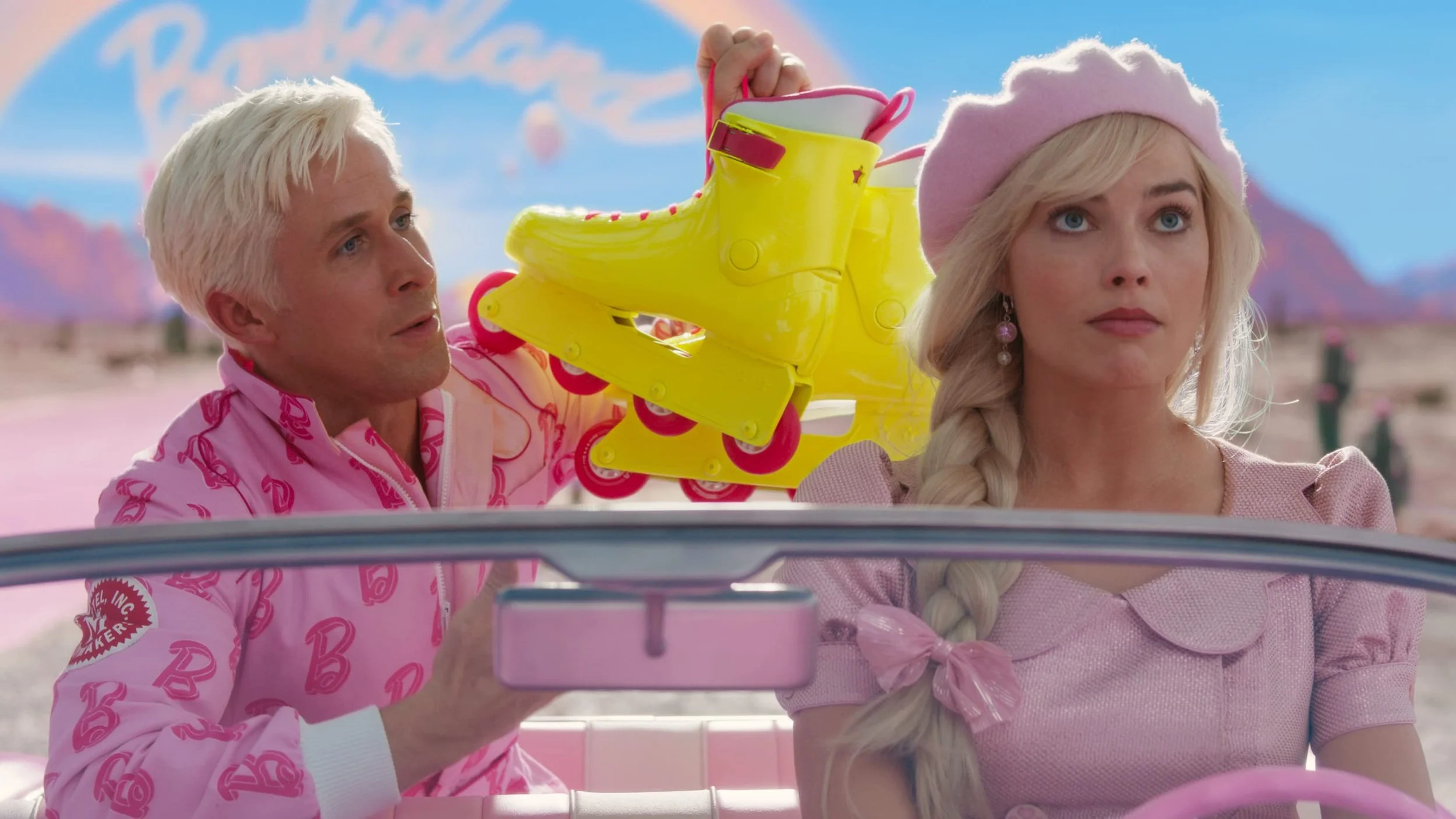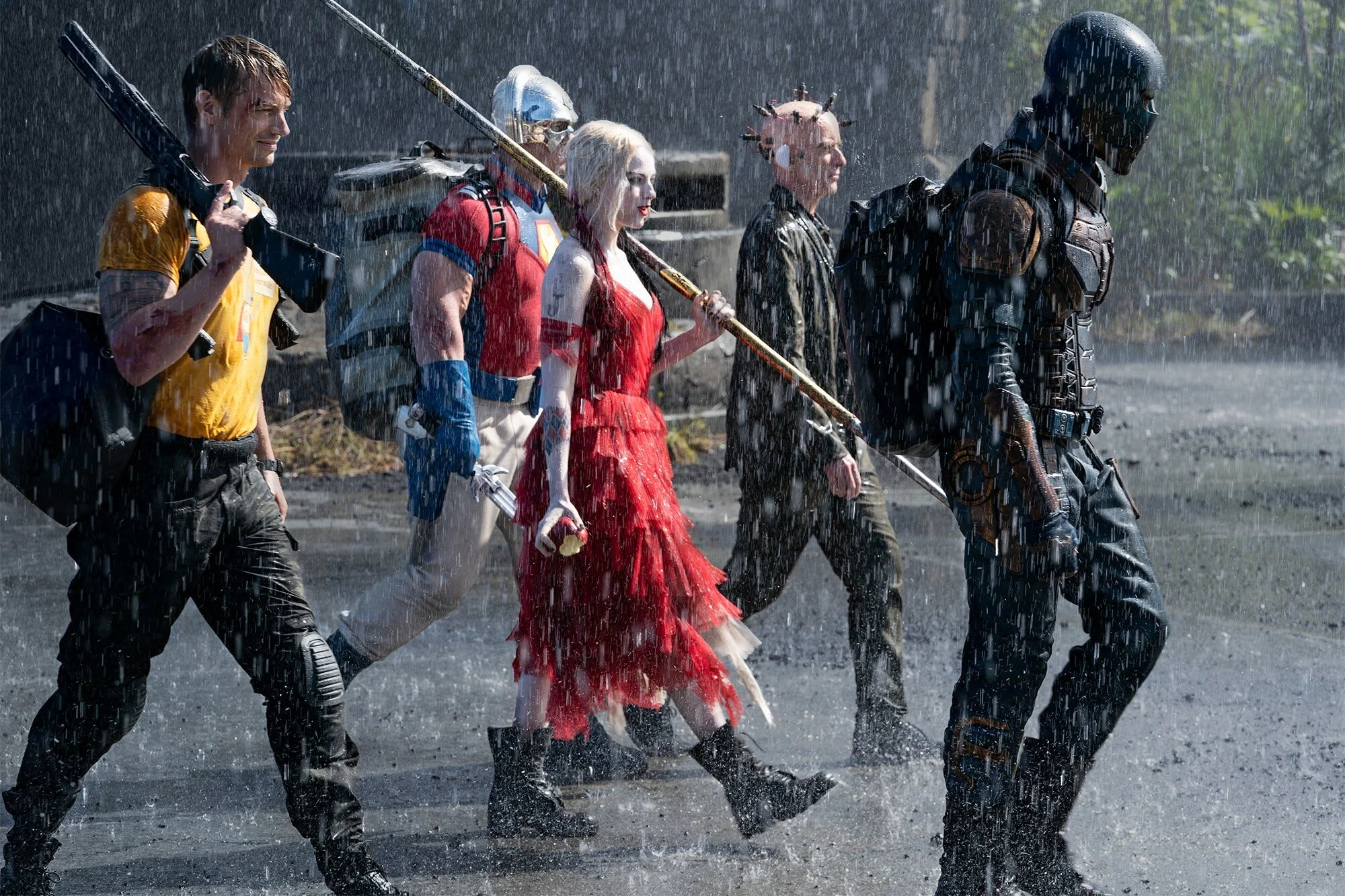FILM REVIEW: Greta Gerwig’s “Barbie” is a technicolour dreamscape of feminist joy
We’ve all grown up with Barbie in one way or another. Whether we played with them as kids, or had family or friends who did, Barbie's influence on pop culture is undeniable. My most vivid Barbie memory is from Toy Story 2 (more specifically, from its delightful end-credits blooper reel). For others, it might be the recent "I'm just like you, you're just like me" TikTok meme. Chances are most people would have formed some opinion on the doll - from its legacy on gender roles and beauty standards, to its role in fostering the imagination of children, as well as its ubiquitous pink. Director Greta Gerwig is keenly aware of this, and expertly integrates this collective consciousness into the most anticipated movie of the year, Barbie.
The premise: Margot Robbie is Stereotypical Barbie, a resident of Barbieland, a perfect 2-dimensional toy Utopia where all our favourite versions of Barbies and Kens (and Allan - there are no multiples of Allan) live and have PG dance parties together for all eternity. That is until Barbie starts thinking about death, and experiences an influx of complicated, human feelings, which kickstarts her journey into the Real World in order to make sense of what’s happening to her. Oh and Ken (Ryan Gosling) tags along too.
Cinematographer Rodrigo Prieto (The Wolf of Wall Street, Brokeback Mountain, and Scorcese’s upcoming Killers of the Flower Moon) matches the campy eccentricity of the film’s story with a visual landscape of pink whimsy that’s quintessentially Barbie, evoking the dream-logic nature of child’s play. Throughout the movie, we see Barbies on perpetual tiptoes, living stairless dream houses, and frolicking on beaches where the ocean waves are frozen into solid props. The production design dazzles, with each set piece radiating a theatrical quality that feels like a mix between The Wizard of Oz and a Wes Anderson film, peppered with Marvel-level easter eggs to delight the most ardent Barbie fans. What the film has achieved here is a sense of tactile artificiality, immersing us into a world that feels both fantastical and real at the same time.
Above all, Barbie is a riotous joyride. In collaboration with co-writer and frequent collaborator Noah Baumbach (Frances Ha, Mistress America, Greenberg), Gerwig leaves no comedic stone unturned in the screenplay, indulging in everything from sharply written self-aware meta one-liners to unapologetically broad, laugh-out-oud screwball gags. This movie goes all out to entertain - it has musical numbers, choreographed dancing, animation, and Hellen Mirren as a fourth-wall-breaking narrator.
Ryan Gosling steals the show here as the film’s comedic keystone, delivering an absolutely transcendent performance as Ken that shatters the understated dramatic persona we’ve come to expect from him in films like Drive, The Place Beyond The Pines, and Blade Runner 2049. With his spot-on comedic timing and effortless charm, Gosling’s shameless commitment makes him the perfect bumbling antagonistic force in this movie you can’t help but swoon over. Margot Robbie, on the other hand, stands as the film’s emotional anchor as Barbie. Few would contest her perfect casting as the embodiment of the iconic doll, but it’s Robbie’s heartfelt portrayal of existential fear and disillusionment as Barbie confronts the stark realities women face in the not-so-perfect Real World, which is the grounding throughline amidst the kaleidoscopic flurry.
In Barbie, Greta Gerwig continues her signature style of weaving sincerity and wit with pointed reflections on being a woman in a male-dominated world. However, the themes in this movie are not explored as deftly as in her previous films. For example, there is a subplot involving Will Ferrell as the Mattel CEO feels underdeveloped, and ultimately detracts from the feminist undercurrent of the film. Nevertheless, Barbie is a natural continuation of Gerwig's cinematic vision of women trying to navigate and renegotiate their identities within the rigid confines of societal structures.
In the end, Barbie is a joyous, candy-coated celebration of a cultural juggernaut, and a playful, resonant exploration of self-discovery in a world that still has a lot of room to grow.






